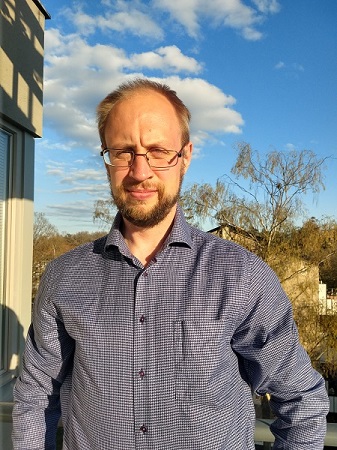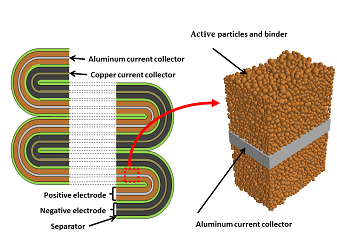Profile of the month: Erik Olsson, Docent in Solid Mechanics
Interview with Docent Erik Olsson

How did it start for you? What made you choose your particular subject?
When I chose to specialize after three years at Engineering Physics at KTH, I had realized that I wanted to work in an applied area that is important for Swedish industry. The basic course in Solid Mechanics had made a good impression on me a year earlier. I later did my master thesis at the department and really enjoyed myself in that environment. When there were vacant PhD position it was natural that I continued.
Why is research on Solid Mechanics needed?
Knowledge in Solid mechanics is a foundation for a sustainable society! We need to design our products so that they last as long as possible and that the material consumption is reduced. Big gains can be made by better utilizing materials in different products.
What is your research about right now?
Now in the spring I am on parental leave with my son, Emil. When I come back after the summer, there

is a lot going on. I supervise a doctoral student, Elaheh Etemadi, who studies the mechanical behavior of lithium-ion batteries with particle methods (see image). The goal is to understand why the batteries lose capacity over time. I also study fatigue of hardened steel with the aim of optimizing the curing process of, for example, gears. Scania and Atlas Copco are important partners in this work.
A third area that I will continue with in the autumn is modeling of high-speed rail beams. The goal is to be able to predict how large subsidence will be obtained after a long time and to design the track so that the use of concrete is minimized, which leads to less environmental impact during construction. This work is done together with the ABE school at KTH.
How does it feel when you have made progress?
Since there is so much going on, it's just to take on the next problem.
What will you get the Nobel Prize for?
Haha, research in the field of Solid Mechanics usually don’t result in a Nobel Prize, even though it happened in 1946 in physics.
Finally, what do you do when you are not engaged in research at KTH?
I try to be out in nature as much as possible. Before I became a father, I was out hiking every summer. I also like cross-country running and being out on the lake fishing.
